The UK government must urgently rethink the way it engages with the country’s Muslim communities if it is to mend its “broken relationship” with them, a major report has concluded.
The study of Muslim participation in public life, published Monday by a commission chaired by former Tory attorney general Dominic Grieve, calls for a review into the government’s anti-radicalisation strategy Prevent, which has been criticised as being counterproductive since being introduced in 2011.
Grieve, the government's top lawyer between 2010 and 2014, said unless action is taken, there is a real risk of "a downward spiral of mutual suspicion and incomprehension".
The report’s authors noted that their work took place while there was a sense of increasing division and polarisation in the UK, and that their recommendations should be seen as a “priority” for the government.
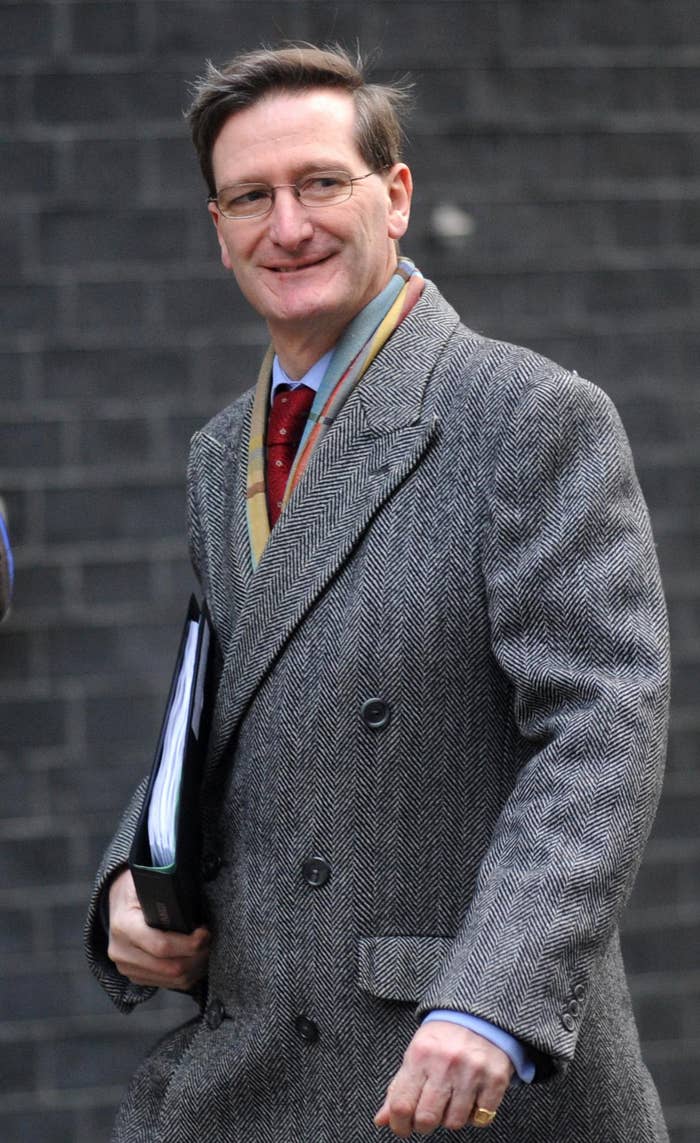
The independent panel of high-profile figures from business, academia, and politics, as well as faith leaders, found that the integration of Muslims into the civic and political process of Britain had not been developing as well as it should, and that such exclusion had led to alienation and, in turn, separation.
Over the last 18 months, the Citizens Commission on Islam, Participation, and Public Life compiled 500 hours of testimonies and evidence about the experiences of Muslim and non-Muslims across the UK.
The result is the landmark Missing Muslims report, which publishes its findings and recommendations after four terror attacks on UK soil in as many months.
“The shocking terrorist attacks in Westminster, Manchester, London Bridge and Finsbury Park demonstrate the terrible impact extremism has on innocent citizens," said Grieve, the Tory MP for Beaconsfield.
"The response to those attacks; with communities coming together in unity and defiance demonstrates why the recommendations in this report should be actioned as a matter of priority, so the UK can build on the positive work already happening."
Polls show scepticism across wider British society about the integration of British Muslim citizens, while British Muslims have mixed views about the extent to which they have equal status or access to equal opportunities within the UK.
Grieve said such a dynamic "makes the need for action to break down barriers and bring people together even more necessary.”

The report highlights how many factors are at play in Muslim individuals' distancing themselves from public life, and the commission recognised how "unlocking a fuller Muslim presence in and contribution to British public life" could help to reduce perceptions of increasing polarisation within British society.
One of its key findings is that Muslims, who make up 4.4% of the UK population and are the largest and fastest-growing minority faith group, are often treated in the public discourse as being either a disadvantaged group or as "a threat within".
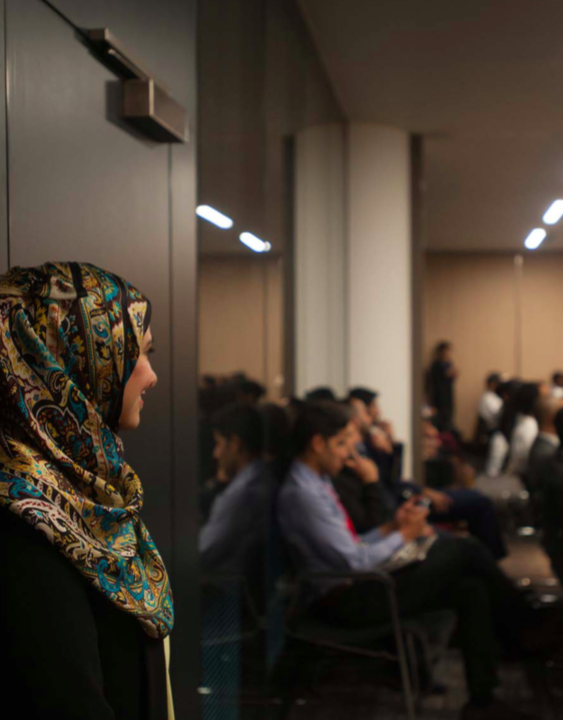
Neil Jameson, the executive director of Citizens UK, said one of the issues guiding the commission was the experience of community organisers, who are now finding it more difficult to recruit mosques and Muslim groups into citizens alliances who had become "more anxious about the welcome they would receive".
The commission, the first of its kind, held public hearings from October 2015 to January 2017, visiting communities across the country, including Birmingham, Cardiff, and Glasgow.
It is made up of a diverse range of experts – including Jenny Watson, the former chair of the Electoral Commission; Sophie Gilliat-Ray, professor of religious studies at Cardiff University; and Sir Trevor Chinn, an entrepreneur who sits on the executive committee of the Jewish Leadership Council – who toured the country alongside advisers, a Muslim leadership group, and a youth leadership group.
Hashi Mohamed, a barrister and broadcaster and a member of the commission said: "Different communities are facing their own specific challenges; which became self evident during our travels. But there was unanimity in the way many felt they [Muslims] have been subject to adverse scrutiny to a much greater degree now, where allegations have been made about their motivations in getting involved in public life and politics."
The wide-ranging report makes a total of 18 recommendations to three stakeholders including civil society and the business sector, government and local authorities, as well as recommendations for Muslim communities; six key areas were identified to assess the "missing Muslims" in public life, listed below.

Political engagement
A recent Policy Exchange polling of British Muslim opinion shows that over the previous 12 months, 72% of the Muslims polled had voted in an election, compared to 54% of the general population (per the control group).
Over 200 Muslims are represented in British local government, and there are currently 15 MPs from a British Muslim background.
Yet the commissioners found during the hearings that discrimination, and fears of being discriminated against, are actively discouraging participation and contributing to disillusionment among young British Muslims with the political process – pointing to the headlines and campaign against Sadiq Khan the mayor of London.
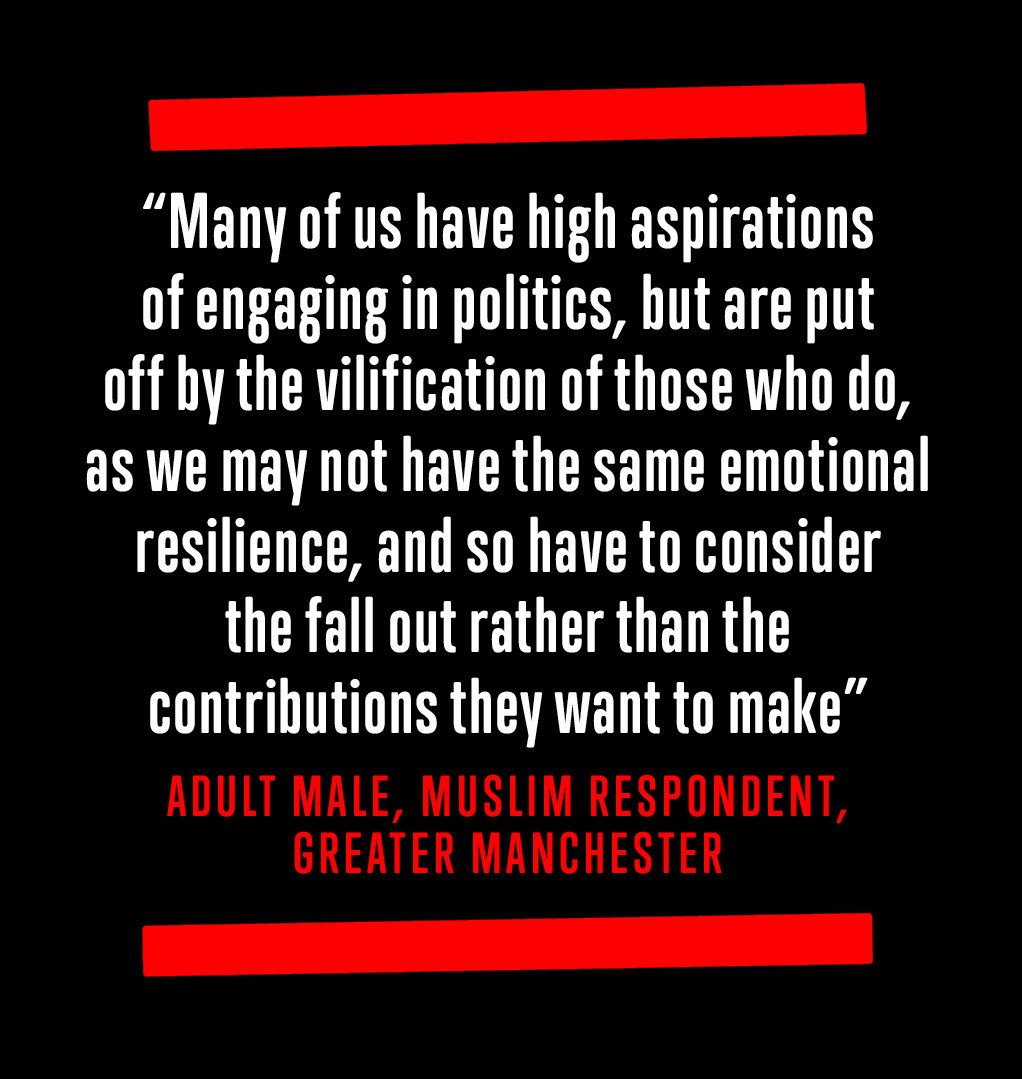
Another issue outlined in the report was that local politicians will seek out and gain the support of "gatekeepers" within the biraderi system, a form of patronage that often excludes young people and women.
The report recommends:
A cross-party committee to develop a charter for a voluntary code of conduct for political parties to sign up to – which would ensure potential women candidates are not being unfairly excluded
For the government to develop an integration strategy
For the government to reassess the way in which it engages with the UK’s Muslim communities, and both the government and Muslim communities to play their role in ending the current stalemate

Identity
Many Muslims the commission heard from share the belief that the UK is one of the best places to practise Islam freely, with 73% of Muslims in the 2011 census actively identifying themselves as British.
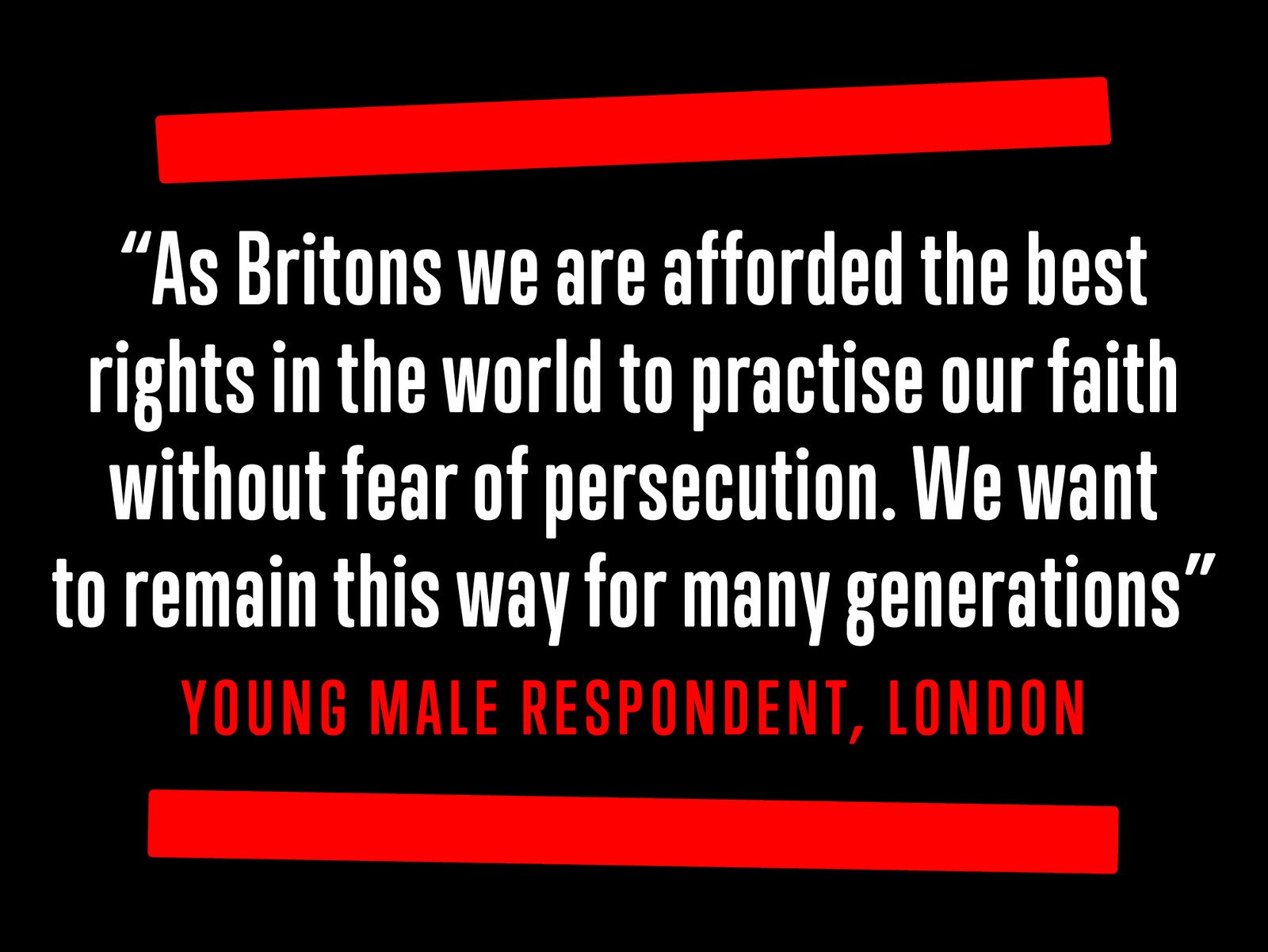
But the report also outlines how young Muslims are growing up in a climate of being “othered”. It adds how the increased scrutiny in and coverage on “Muslim issues” can result in an “us versus them” dichotomy, which produces its own cycle of separateness.
According to the report: "A coherent, yet inclusive, British identity needs to be forged, particularly among young Britons, if all our citizens are to feel confident about their role within a cohesive and multicultural society, as opposed to being problematised and therefore restricted from actively participating in public life."

Integration
The commission found a lack of integration is most apparent in areas of high deprivation, but points to the need to address structural barriers, including a lack of economic opportunities and discrimination.
Contrary to the popular belief that there is a “lack of integration” by Muslim communities, the commission encountered a wealth of positive community work by British Muslims, as well as other groups, at a local level across ethnic and religious lines – pointing to the work on the Living Wage campaign and Refugees Welcome.
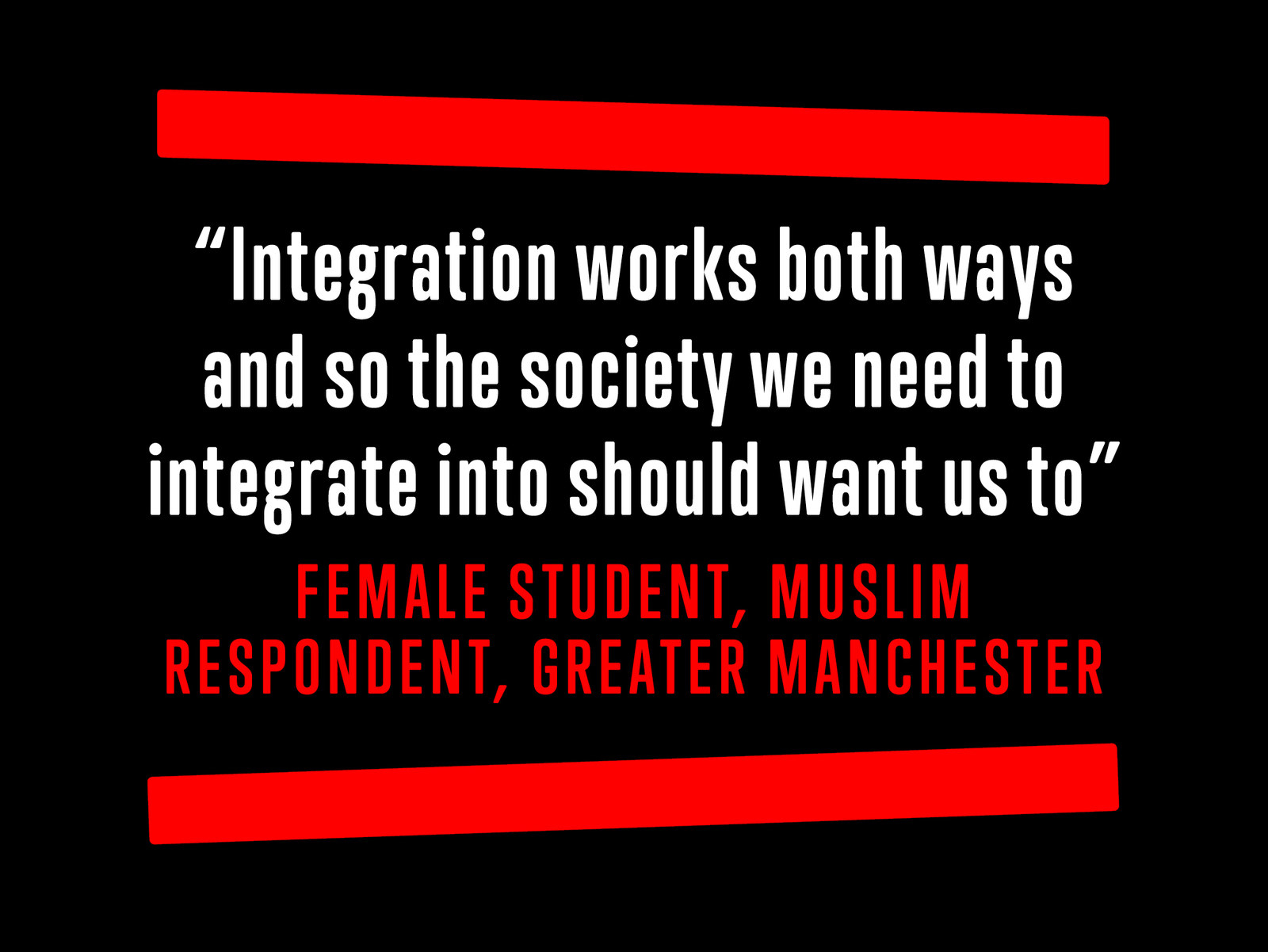
The report recommends:
For local authorities, schools, colleges, and youth clubs to champion and expand opportunities for young people from different backgrounds to meet and share experience
For local authorities and civil organisations to work together to strengthen existing structures at local levels to develop cross-community relationships
For local authorities to safeguard investment in shared common spaces that bring people together in a secular environment, and enable cross-community friendships to develop
For the public appointments’ unit within the Cabinet Office to develop a comprehensive online platform that explains the civic engagement opportunities available at a local level as well as nationally

Employment
Employment disadvantages, and discrimination, act as barriers to integration for British Muslims, the report said. It added how disadvantage in employment is particularly acute for Muslim women, and is compounded by cultural, rather than religious, pressures some feel from within their own communities.
The report pointed highlighted findings from the House of Commons Women and Equalities Select Committee who reported how despite being highly qualified, many British Muslim women are passed over for jobs and sidelined in the workplace.
The commission heard there was an "aspiration ambition deficit" notable amongst some young Muslims, and how every young person they spoke with said there needed to be greater mentoring. The report pointed to community led initiatives such as the Good Jobs Campaign that created four high-quality training programmes for young people with leading companies, and Muslim Women Connect, a mentoring network set up by two Muslim women in their twenties.
The report recommends:
For existing mentoring schemes, such as those offered by Mosaic (an initiative of the Prince’s Trust), to adapt elements of their service offering to address the specific needs of Muslim individuals
For Business in the Community to establish local compacts, to which employers are asked to sign up – which would include blind name and address applications and unconscious bias training
For employers to deepen their engagement with earlier stages of the education cycle and with non-Russell Group universities

Muslim leadership
The commission, which heard from many Muslim communities, said it was repeatedly told about the need for better leadership within the UK’s Muslim communities.
One key theme that came up was the need of management committees of the UK’s mosques to better understand, and respond to, modern British life.
The report said: "There is also more work to be done on building partnerships with non-British Muslims on local issues of concern, and standing together with others to combat hate crime directed against those of other ethnicities and faiths."
There have been positive efforts, and many mosques with food banks and faith-inspired organisations giving back to their local communities. The report highlighted the work of the Ramadan Tent Project; the British Islamic Medical Association, which has taught CPR and basic life support skills to over 2,000 people in mosques; and Who Is Hussain, which offers free haircuts and dental checks to homeless people.
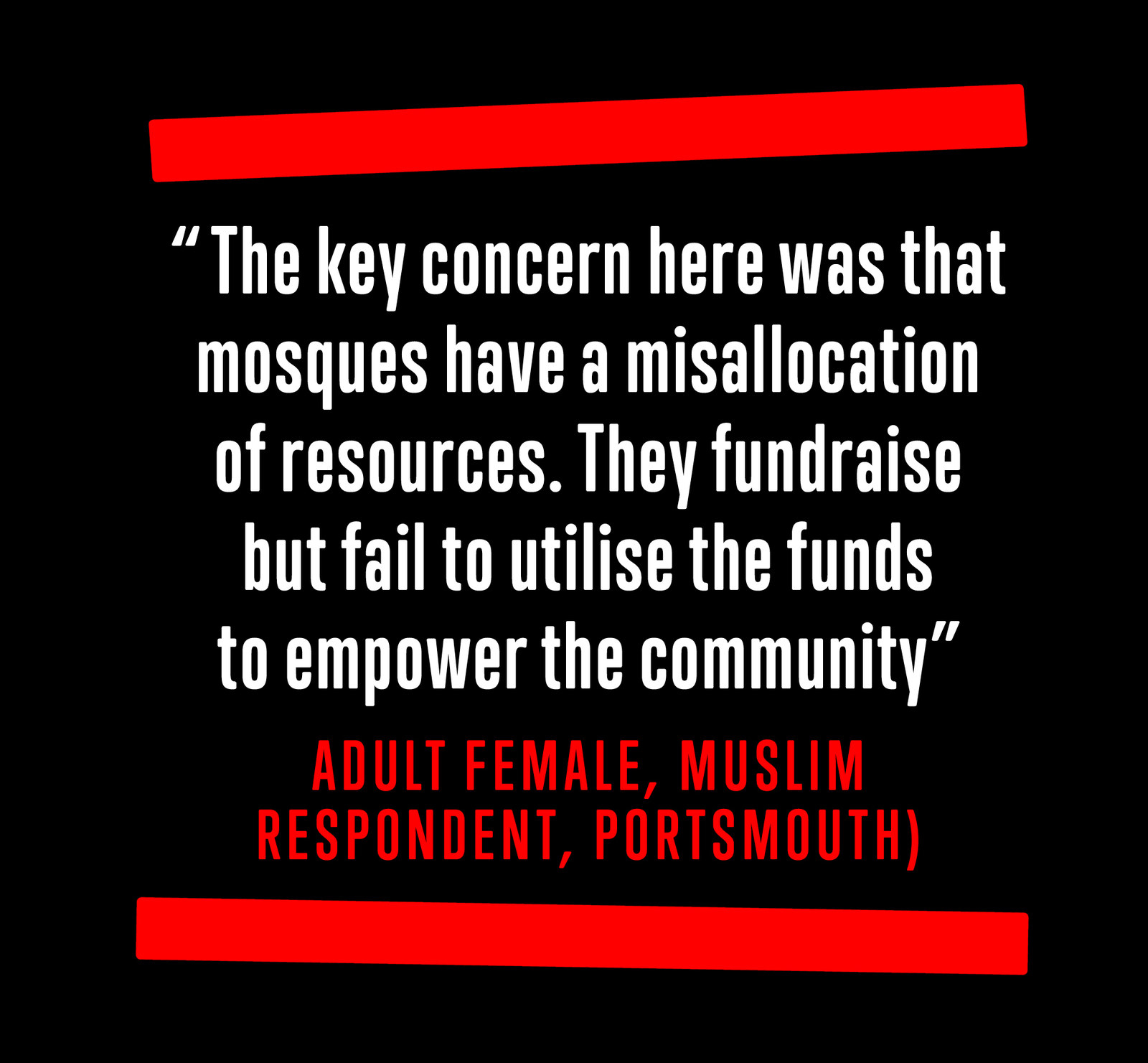
Another key issue is overcoming the challenges for Muslim women in the UK to participate fully in public life. The commissioners found participation varies based on ethnic origin, "which demonstrates that resistance to greater female participation is cultural, not religious."
The report added: "What is clear is that there is no shortage of talented women who could make a significant contribution both to the UK and to their own community, if some of the barriers standing in their way could be removed. "
The report recommends:
For Muslim umbrella bodies to introduce voluntary standards for mosques and Islamic centres – which would look at reforming mosque committees and improve access for women
For mosques to explore partnerships both within and outside the Muslim communities to develop capacity
For mosques to invest in British-born Imams who are to be paid a decent living wage, funded by Muslim institutions in the UK, and equipped with pastoral skills so they are able to deal with the challenges facing British Muslims (the commissioners say they would recommend universities consider pairing with seminaries)
For Muslim professionals to invest in helping strengthen their own communities by, for example, lobbying for the establishment of the voluntary standards

Security, policing, and hate
The report said: "Anti-Muslim prejudice, and a lack of action against those perpetrating or condoning hatred, is a notable obstacle to integration and participation."
The commissioners said they were concerned about the impact of some recent media reporting and how "this may deter talented individuals – particularly youth – from playing a full part in British society". They pointed to the work done by Miqdaad Versi, the assistant secretary general of the Muslim Council of Britain, who has led a campaign resulting in over 30 corrections of national media's false or misleading reporting – such as a newspaper inaccurately claiming Ramadan was the cause of a train crash.
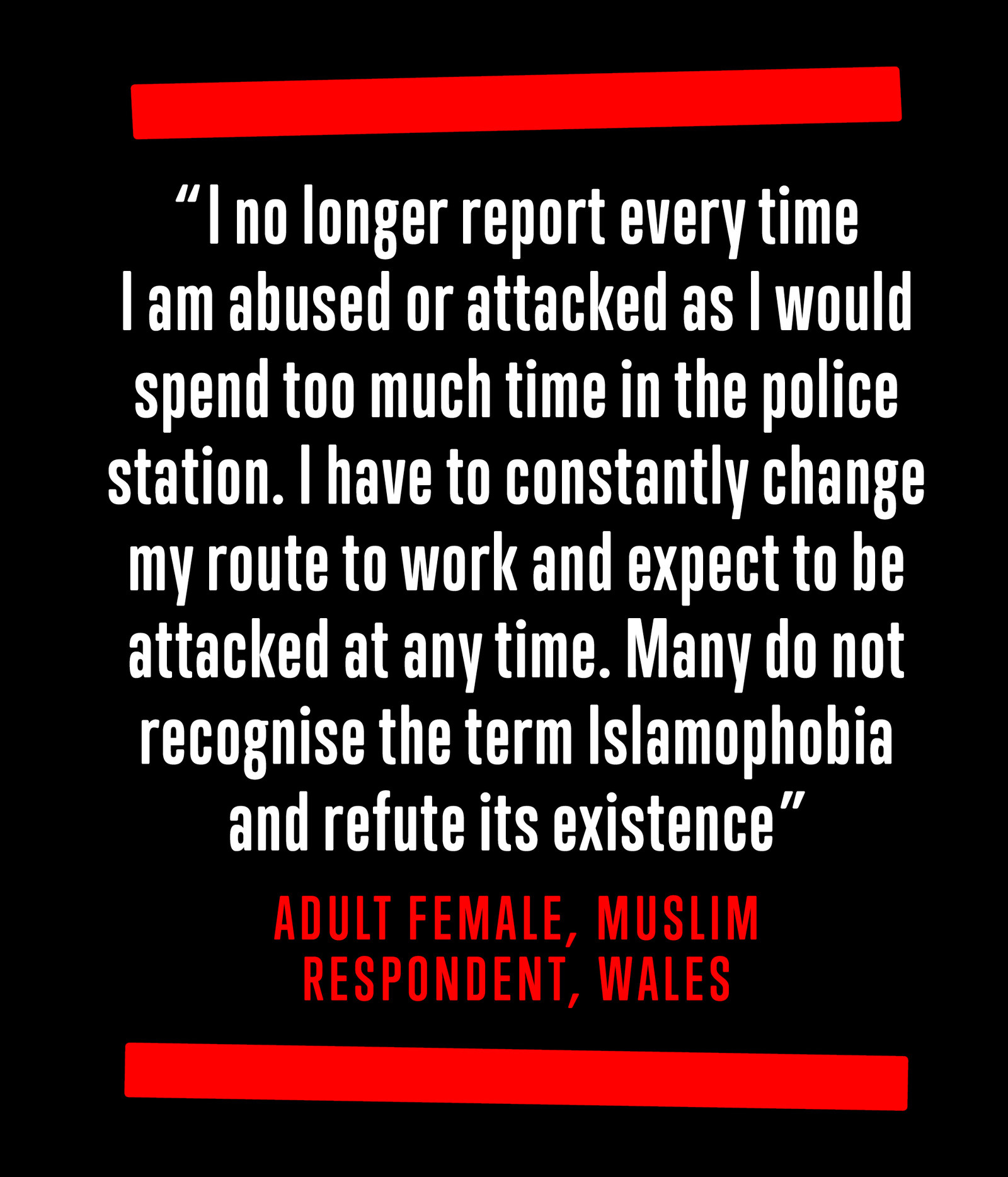
The impact of the government’s Prevent strategy on Muslim communities came up in every location the commission visited, and how the programme is generally understood to unfairly target Muslims, leading to a “'police state' atmosphere".
The report recommends:
For the government to adopt a definition of anti-Muslim prejudice
For the press regulator to consider providing guidance on accurate reporting on Muslim issues, to ensure that faith is not being conflated with extremism
For the government to convene an independent review of Prevent via an independent panel comprising individuals with relevant expertise
For local authorities to develop a Prevent advisory group made up of local stakeholders to share best practice and raise concerns
